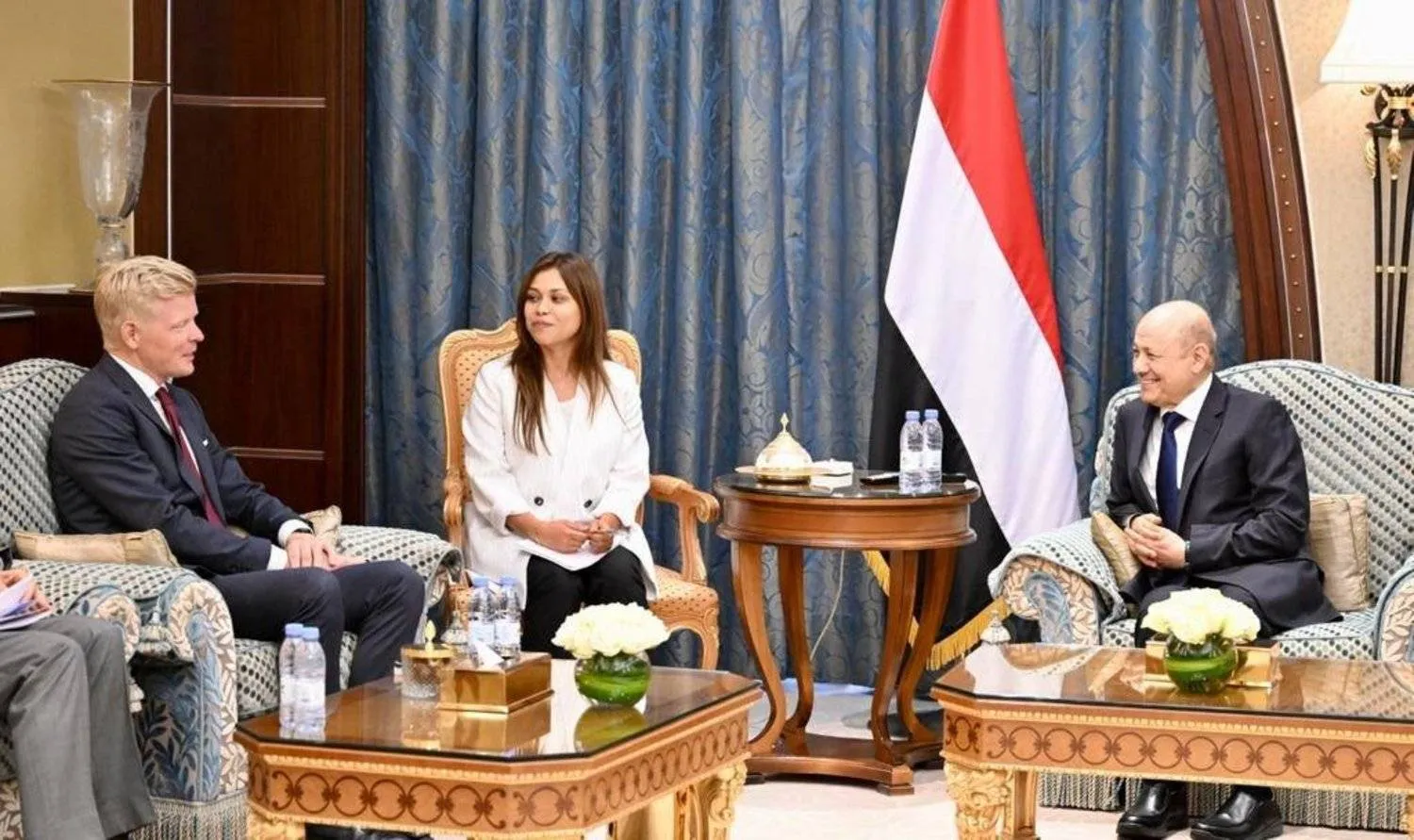The UN Secretary-General's envoy to Yemen, Hans Grundberg, announced that hostilities on the frontlines have not returned to pre-truce levels, despite his assertion that fighting has continued on some frontlines.
In his briefing to the Security Council on Wednesday, the UN envoy said that all parties to the conflict are willing to seek solutions.
However, intermittent fighting and exchanges of fire have continued on some frontlines, particularly in Taiz, Marib, Dhale, Hodeida, Shabwa, and Saada, said Grundberg, noting that there have been public threats to return to war, without indicating who is making those threats.
The UN envoy renewed his appeal to the two parties to release all detainees based on the "all-for-all principle."
He reviewed his recent mediation efforts with the Yemeni parties and regional countries, including his visit last week to Riyadh, where he met with the head of the Yemeni Presidential Leadership Council, Rashad al-Alimi, and several senior Yemeni and Saudi officials.
Grundberg also traveled to Muscat to hold meetings with Houthi representatives and Omani officials to establish "a clear agreement" on the way forward that includes restarting an inclusive Yemeni political process.
"There have been public threats to return to war. This rhetoric is not conducive to maintaining a fruitful mediation environment," warned the envoy, calling on the parties to refrain from "escalatory rhetoric and to continue to use and build on dialogue channels established under the truce."
- No improvement without economy
Grundberg described the Yemeni economic situation as "increasingly dire," noting that both sides continue to "resort to antagonistic economic measures to weaken the other side" and warned that "these tactics primarily hurt civilians."
He praised Saudi Arabia's pledge of $1.2 billion earlier this month, saying it was a "welcome step," noting that "there will be no lasting improvement in the situation until the parties come together to discuss and agree on sustainable solutions to Yemen's economic and fiscal challenges."
He recalled the siege imposed on Taiz Governorate eight years ago, stressing that there was a "dire need for road openings in Taiz and other governorates to facilitate the freedom of movement of Yemenis who have faced restrictions to accessing their basic needs and engaging in economic opportunities."
Grundberg expressed concern about reports that activities of violent extremists have recently increased in the Abyan and Shabwa governorates, explaining that "political and economic instability are fertile grounds for violent extremist groups."
"The fragility of the situation and its impact on Yemeni women and men highlight the urgent need to reach a consensus on the way forward. My Office is working to convene the parties to address some of their immediate priorities to build confidence and move toward an inclusive and sustainable political settlement."
He emphasized that the Office of the Special Envoy of the Secretary-General for Yemen (OSESGY) "continues to explore options" with the parties to address the needs of all Yemenis, including regular public sector salary payments nationwide, improved service provision, affordable essential commodities, a functional banking system, and facilitating commercial activity.
The OSESGY continues engaging "with all parties on the technical elements required for a sustainable nationwide ceasefire."
The UN envoy urged the parties to "progress towards a more formal ceasefire."
He believed the comprehensive political process under the UN auspices should "provide a platform for a plurality of Yemenis from across the country to collectively discuss and determine their own future."
Grundberg reiterated that the continued unity and steadfast support of this Council and the international community, more broadly, have been a pivotal asset for his mediation efforts.
He cited the recent progress on FSO Safer, which showed how concerted international support and multilateral cooperation can bring tangible results.
"The removal of the oil from the FSO Safer to a new vessel has prevented an environmental and humanitarian catastrophe."









